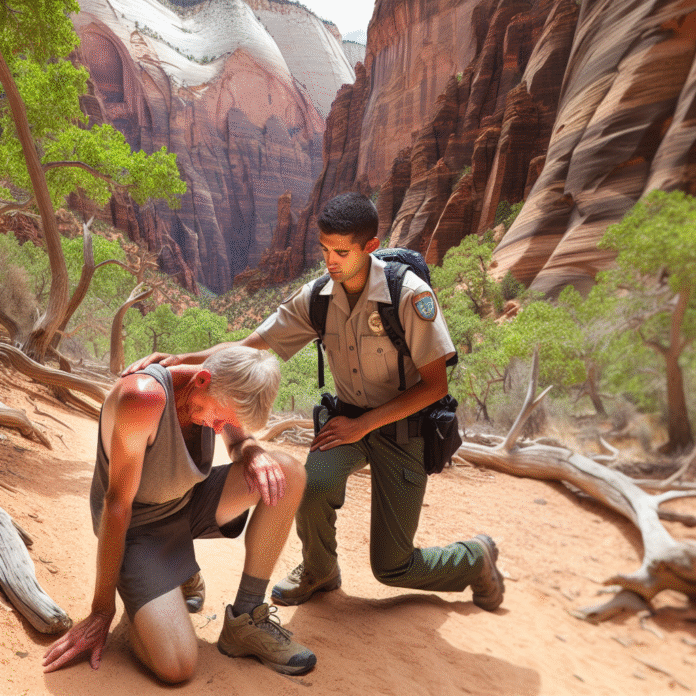Hiker Saved from Heat Injuries in Zion National Park
Hiker Rescued After Suffering Heat-Related Injuries in Zion National Park
A recent incident in Zion National Park has highlighted the dangers of hiking during extreme heat conditions. A hiker was rescued after experiencing severe heat-related injuries while navigating the park’s challenging terrain.
The hiker, whose identity has not been disclosed, was part of a group exploring one of Zion’s popular trails when they began to show signs of heat exhaustion. Fellow hikers alerted park rangers after noticing the individual was unable to continue due to dizziness, nausea, and extreme fatigue.
Emergency responders quickly arrived at the scene, equipped with the necessary gear to provide immediate care in harsh weather conditions. They administered first aid and transported the hiker to a nearby medical facility for further evaluation and treatment. Fortunately, the hiker is expected to make a full recovery, but the incident serves as a stark reminder of the potential hazards that come with outdoor activities, especially in the heat of summer.
Understanding Heat-Related Illnesses
Heat-related illnesses can manifest in several forms, including heat exhaustion and heat stroke, both of which can be life-threatening if not treated promptly. Symptoms of heat exhaustion include heavy sweating, weakness, cold, pale skin, and fainting. Heat stroke, on the other hand, is more severe and can lead to confusion, seizures, and even loss of consciousness, requiring immediate medical intervention.
Precautions for Hikers
To avoid similar incidents, hikers are encouraged to take several precautions during hot weather. These include:
1. **Staying Hydrated**: Drinking plenty of water before, during, and after hikes is essential. It’s advisable to carry at least one gallon of water per person for a full day of hiking.
2. **Wearing Appropriate Clothing**: Light-colored, loose-fitting clothing made of breathable fabrics can help regulate body temperature.
3. **Timing Your Hike**: Planning hikes for early morning or late evening when temperatures are cooler can significantly reduce the risk of heat-related injuries.
4. **Recognizing the Signs**: Hikers should be educated on the symptoms of heat exhaustion and heat stroke, allowing for early intervention if someone in their group begins to feel unwell.
5. **Taking Breaks**: Regular breaks in shaded areas can help cool down the body and prevent overheating.
Resources and Support
Zion National Park offers various resources to ensure the safety of its visitors. The park rangers are trained in wilderness first aid and are equipped to handle emergencies. Additionally, the park’s website provides invaluable information on trail conditions, weather forecasts, and safety tips for planning hikes.
As outdoor enthusiasts continue to flock to national parks, it is crucial to prioritize safety and preparedness. Incidents like this recent rescue serve as a reminder of the importance of being aware of the environment and the potential risks associated with outdoor activities.
